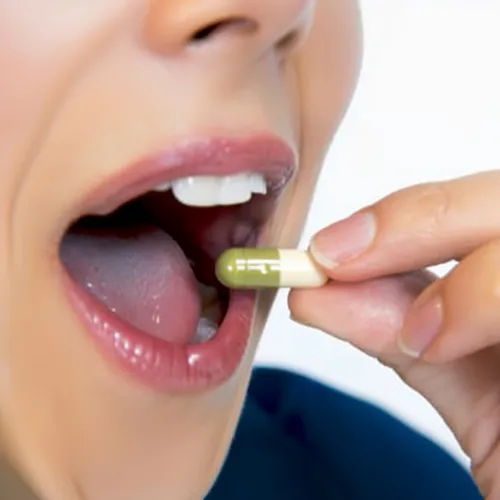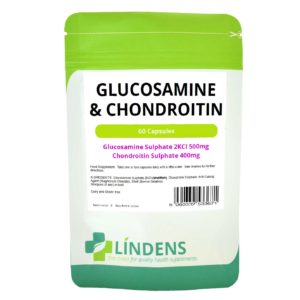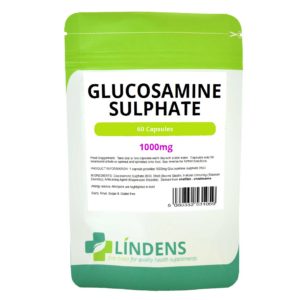If you’re a runner or suffer from joint pain, you’ve probably heard about glucosamine supplements. But do they genuinely help, or is it just a bunch of hype? Let’s dig into the science and my personal experience.
What is Glucosamine?
First, let’s understand what we’re dealing with. Glucosamine, usually in the form of glucosamine sulphate, is a natural compound found in our joint fluid. Its main job? Building cartilage, ligaments, and tendons—the crucial components that allow our joints to move smoothly.
Many folks take glucosamine supplements hoping to ease joint pain, osteoarthritis discomfort, or even conditions like glaucoma and multiple sclerosis. The theory is, by providing extra glucosamine, you give your body more building blocks to repair and maintain joint health.
The Landmark Glucosamine Study
So, what does the research say? One massive study stands out: the Glucosamine/chondroitin Arthritis Intervention Trial (GAIT). This double-blind trial included over 1,500 participants with knee osteoarthritis.
The researchers tested glucosamine alone, chondroitin alone (another supplement often paired with glucosamine), a combo of both, and a placebo. They also compared the supplements to a prescription arthritis drug.
Here’s what they found: For those with moderate to severe knee pain, the glucosamine/chondroitin combo significantly reduced pain compared to the placebo—even better than the prescription medication! Around 79% saw at least a 20% improvement.
However, for mild pain, the supplements didn’t make much difference. So it seems glucosamine is most beneficial for more severe joint issues.
But What About Healthy Adults?
Okay, but what if you’re an average, relatively healthy person without arthritis? Maybe you’re a runner looking to support your joints? The jury is still out on this one.
According to the Natural Medicines Comprehensive Database, glucosamine sulphate is “likely effective” for some osteoarthritis relief, particularly in the knees. Some evidence also suggests it could slow joint breakdown if taken long-term.
However, for other claims like helping with bladder issues, multiple sclerosis, or weight loss, there’s just not enough proof yet. So if you don’t have a specific joint condition, the benefits may be limited.
The Right Dosage Matters
If you do decide to try glucosamine, getting the dosage right is crucial. On expert recommends aiming for 1,500 mg of glucosamine sulphate paired with 800 mg of high-quality chondroitin daily.
It can take several weeks to feel the effects, with most people reporting the best results after six weeks or so of consistent supplementation. Be patient and don’t expect overnight miracles!
My Experience with Glucosamine Supplements
Personally, I don’t have any diagnosed joint issues—I’m just a runner looking to support my hard-working knees. I’ve been taking a glucosamine/chondroitin/MSM/turmeric combo for about six months now.
Have I noticed earth-shattering changes? Not exactly. But there have been some positive signs:
- Less day-to-day knee irritation and soreness after runs
- Way less discomfort using stairs, even after my longest training runs
- My massage therapist noticed reduced overall inflammation
Of course, it’s hard to say if the supplements alone are responsible. Better running form, strength training, and other lifestyle factors could certainly play a role.
But given that glucosamine is relatively safe for most people, I’ll likely keep taking it, at least while I’m actively running and training.
Are There Any Risks?
Speaking of safety, let’s quickly cover potential side effects. Overall, glucosamine sulfate is considered low-risk when taken orally. However, some people may need to be cautious:
- Those with shellfish allergies (as glucosamine is often shellfish-derived)
- People with asthma, diabetes, high blood pressure, or high cholesterol
- Anyone taking blood thinners or certain cancer drugs
Chondroitin, often taken with glucosamine, has a similar risk profile. If you have any concerns, definitely check with your doctor first.
The Bottom Line
So, should you jump on the glucosamine bandwagon? As with most supplements, there’s no simple yes or no answer. It comes down to your specific situation and expectations.
If you have moderate to severe osteoarthritis or joint pain, glucosamine could potentially provide some relief—especially when combined with chondroitin and taken at an appropriate dosage. The evidence here is quite promising.
For healthy individuals without joint issues, the benefits are less clear, but glucosamine still may offer some protective, preventative effects. Just don’t expect miracles!
At the end of the day, glucosamine appears to be relatively safe for most people. If you’re looking to support your joints and willing to be patient, it could be worth a try, especially if you’re an active individual like a runner. But as always, check with your doctor first, especially if you have any underlying conditions.
I hope this demystifies the great glucosamine debate a bit! Let me know if you have any other supplement questions. Happy, healthy joints to you!
Photo “Glucosamine” by Anthony Cunningham for Zoom Health
Zoom Health is a leading UK supplier of Home Health Tests and Earplugs







